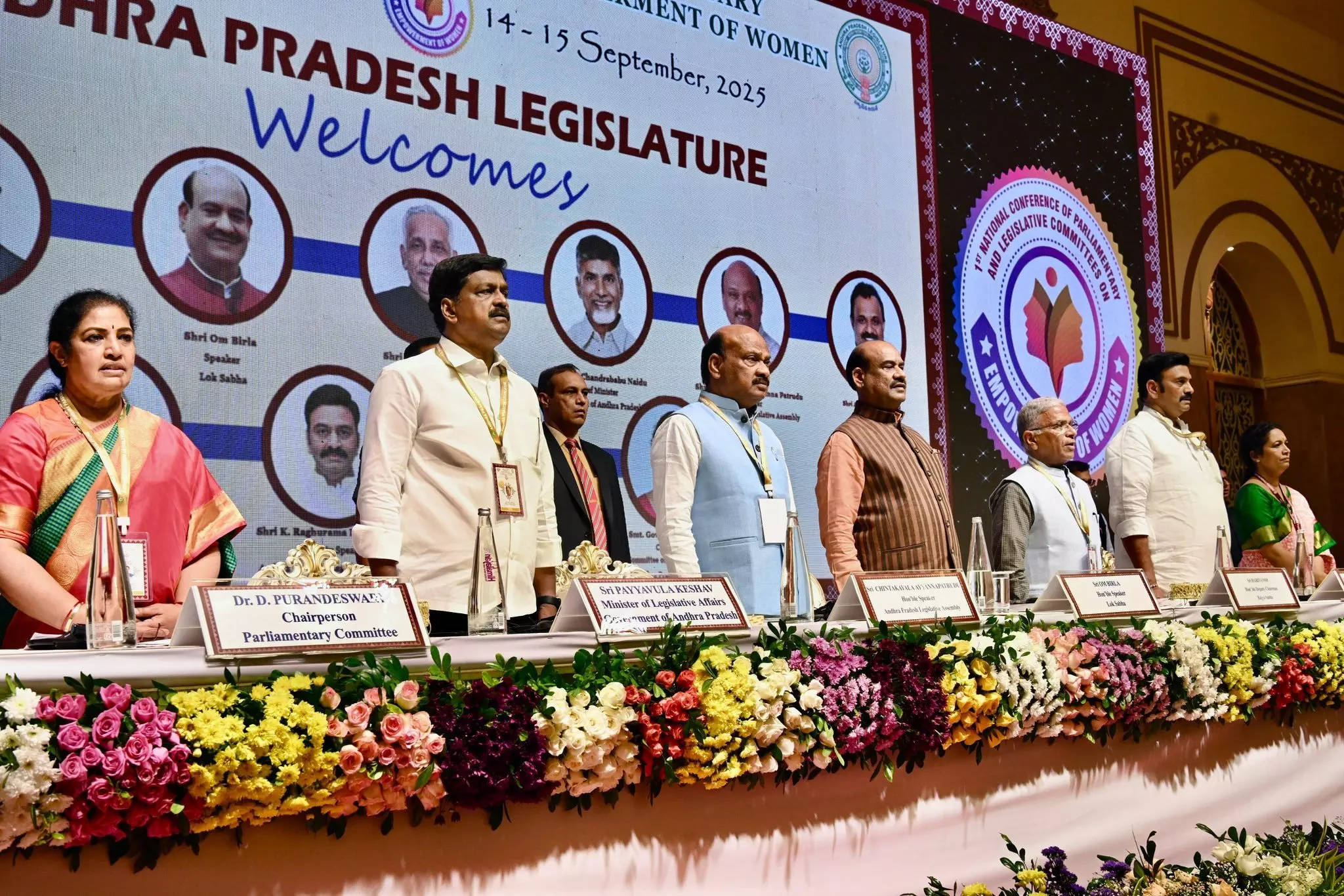By avinash subramanyan
Copyright deccanchronicle

Tirupati:The two-day national conference of parliamentary and legislative committees on Empowerment of Women held in Tirupati on Monday with the adoption of the ‘Tirupati Resolution’, which outlined a roadmap for advancing women’s empowerment.The resolution called for applying a gender lens across all ministries and departments, with a focus on enhancing gender-specific allocations for health, education, skills and entrepreneurship. It stressed on gender-responsive budgeting and strengthening women’s technical capacities at all levels.It pledged to bridge the digital divide, promote women’s participation in STEM (Science, Technology, Engineering, and Mathematics) fields, ensure cyber safety, expand digital literacy programmes, and enable women to become active creators of technology. The resolution made a commitment to advancing education, health, safety, dignity and self-reliance for women as the foundation for achieving Viksit Bharat by 2047.Addressing the valedictory session, Governor S Abdul Nazeer said women’s empowerment contributed not only to their uplift but also to society’s progress. Practices such as sati and child marriage had no place in ancient scriptures, which instead emphasized on respect for women. Where women are not respected, no programme can succeed, he said.On the issue of denial of inheritance rights, the governor said women were seen inferior in male-dominated societies, but the Constitution upholds equality. “Women today are competing strongly in politics, employment and business. Supreme Court judgments, he noted, have safeguarded their rights.”Women, however, constitute only 14 per cent of the Lok Sabha, compared with a global average of 26.5 per cent. The Women’s Reservation Bill, 2023, mandating 33 per cent reservation in legislatures, would expand women’s role in policymaking, he said.Lok Sabha Speaker Om Birla said gender-responsive budgeting was not merely a financial mechanism but a socio-economic model integrating women’s needs into the national development agenda. “Budgets must act as instruments of social justice,” he said.He called for institutionalising Gender Budget Cells in ministries and state departments, allocating higher resources for women’s healthcare, education, entrepreneurship and bank credit, and monitoring outcomes through gender-disaggregated data.



